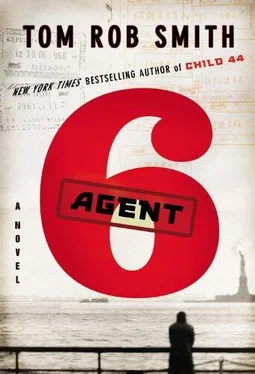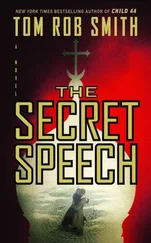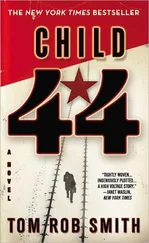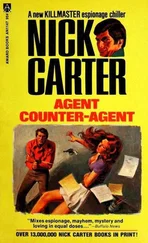Tom Smith - Agent 6
Здесь есть возможность читать онлайн «Tom Smith - Agent 6» весь текст электронной книги совершенно бесплатно (целиком полную версию без сокращений). В некоторых случаях можно слушать аудио, скачать через торрент в формате fb2 и присутствует краткое содержание. Жанр: Триллер, на английском языке. Описание произведения, (предисловие) а так же отзывы посетителей доступны на портале библиотеки ЛибКат.
- Название:Agent 6
- Автор:
- Жанр:
- Год:неизвестен
- ISBN:нет данных
- Рейтинг книги:4 / 5. Голосов: 1
-
Избранное:Добавить в избранное
- Отзывы:
-
Ваша оценка:
- 80
- 1
- 2
- 3
- 4
- 5
Agent 6: краткое содержание, описание и аннотация
Предлагаем к чтению аннотацию, описание, краткое содержание или предисловие (зависит от того, что написал сам автор книги «Agent 6»). Если вы не нашли необходимую информацию о книге — напишите в комментариях, мы постараемся отыскать её.
Agent 6 — читать онлайн бесплатно полную книгу (весь текст) целиком
Ниже представлен текст книги, разбитый по страницам. Система сохранения места последней прочитанной страницы, позволяет с удобством читать онлайн бесплатно книгу «Agent 6», без необходимости каждый раз заново искать на чём Вы остановились. Поставьте закладку, и сможете в любой момент перейти на страницу, на которой закончили чтение.
Интервал:
Закладка:
Tom Rob Smith
Agent 6
Moscow Lubyanka Square The Lubyanka, Headquarters of the Secret Police
21 January 1950
The safest way to write a diary was to imagine Stalin reading every word. Even exercising this degree of caution there was the risk of a slipped phrase, accidental ambiguity – a misunderstood sentence. Praise might be mistaken for mockery, sincere adulation taken as parody. Since even the most vigilant author couldn’t guard against every possible interpretation, an alternative was to hide the diary altogether, a method favoured in this instance by the suspect, a young artist called Polina Peshkova. Her notebook had been discovered inside a fireplace, in the chimney no less, wrapped in waxy cloth and squeezed between two loose bricks. To retrieve the diary the author was forced to wait until the fire died down before inserting her hand into the chimney and feeling for the book’s spine. Ironically the elaborate nature of this hiding place had been Peshkova’s undoing. A single sooty fingerprint on her writing desk had alerted the investigating agent’s suspicions and re-directed the focus of his search – an exemplary piece of detective work.
From the perspective of the secret police, concealing a diary was a crime regardless of its content. It was an attempt to separate a citizen’s public and private life, when no such gap existed. There was no thought or experience that fell outside e party’s authority. For this reason a concealed diary was often the most incriminating evidence an agent could hope for. Since the journal wasn’t intended for any reader the author wrote freely, lowering their guard, producing nothing less than an unsolicited confession. From-the-heart honesty made the document suitable for judging not only the author but also their friends and family. A diary could yield as many as fifteen additional suspects, fifteen new leads, often more than the most intense interrogation.
In charge of this investigation was Agent Leo Demidov, twenty-seven years old: a decorated soldier recruited to the ranks of the secret police after the Great Patriotic War. He’d flourished in the MGB through a combination of uncomplicated obedience, a belief in the State he was serving and rigorous attention to detail. His zeal was underpinned not by ambition but by earnest adoration of his homeland, the country that had defeated Fascism. As handsome as he was serious-minded, he had the face and the spirit of a propaganda poster, a square jaw with angular lips, ever ready with a slogan.
In Leo’s brief career with the MGB, he’d overseen the examination of many hundreds of journals, pored over thousands of entries in the tireless pursuit of those accused of anti-Soviet agitation. Like a first love, he remembered the first journal he’d ever examined. Given to him by his mentor, Nikolai Borisov, it had been a difficult case. Leo had found nothing incriminating among the pages. His mentor had then read the same journal, highlighting an apparently innocent observation: December 6th, 1936, Last night Stalin’s new constitution was adopted. I feel the same way as the rest of the country, i.e., absolute, infinite delight.
Borisov had been unsatisfied that the sentence conveyed a credible sense of delight. The author was more interested in aligning his feelings with the rest of the country. It was strategic and cynical, an empty declaration intended to hide the author’s own doubts. Does a person expressing genuine delight use an abbreviation – i.e. – before describing their emotions? That question was put to the suspect in his subsequent interrogation.
INTERROGATOR BORISOV: How do you feel right now?
SUSPECT: I have done nothing wrong.
INTERROGATOR BORISOV: But my question was: how do you feel?
SUSPECT: I feel apprehensive.
INTERROGATOR BORISOV: Of course you do. That is perfectly natural.
But note that you did not say: ‘I feel the same as anyone would in my circumstances, i.e., apprehension.’
The man received fifteen years. And Leo learned a valuable lesson – a detective was not limited to searching for statements of sedition. Far more important was to be ever-vigilant for proclamations of love and loyalty that failed to convince.
Drawing from his experiences over the past three years, Leo flicked through Polina Peshkova’s diary, observing that for an artist the suspect had inelegant handwriting. Throughout she’d pressed hard with a blunt pencil, never once sharpening the tip. He ran his finger over the back of each page, across sentences indented like Braille. He lifted the diary to his nose. It smelt of soot. Against the run of his thumb, the pages made a crackling noise, like dry autumn leaves. He sniffed and peered and weighed the book in his hands – examining it in every way except to actually read it. For a report on the content of the diary he turned to the trainee assigned to him. As part of a recent promotion Leo had been tasked with supervising new agents. He was no longer a pupil but a mentor. These new agents would accompany him on his working day and during his night-time arrests, gaining experience, learning from him until they were ready to run their own cases.
Grigori Semichastny was twenty-three years old and the fifth agent Leo had taught. He was perhaps the most intelligent and without a doubt the least promising. He asked too many questions, queried too many answers. He smiled when he found something amusing and frowned when something annoyed him. To know what he was thinking merely required a glance at his face. He’d been recruited from the University of Moscow, where he’d been an exceptional student, gifted with an academic pedigree in contrast to his mentor. Leo felt no jealousy, readily accepting that he would never have a mind for serious study. Able to dissect his own intellectual shortcomings, he was unable to understand why his trainee had sought a post in a profession for which he was entirely unsuited. So mismatched was Grigori for the job that Leo had even contemplated advising him to seek another career. Such an abrupt departure would place the man under scrutiny and would, in all likelihood, condemn him in the eyes of the State. Grigori’s only viable option was to stumble along this path and Leo felt it his duty to help him as best he could.
Grigori leafed through the pages intently, turning backwards and forwards, apparently searching for something in particular. Finally, he looked up and declared:
– The diary says nothing.
Remembering his own experience as a novice, Leo was not entirely surprised by the answer, feeling disappointment at his protege’s failure. He replied:
– Nothing?
Grigori nodded.
– Nothing of any importance.
The notion was improbable. Even if it lacked direct examples of provocation, the things unmentioned in a diary were just as important as the things that were written down. Deciding to offer these wisdoms to his trainee, Leo stood up.
– Let me tell you a story. A young man once remarked in his diary that on this day he felt inexplicably sad. The entry was dated 23 August. The year was 1949. What would you make of that?
Grigori shrugged.
– Not much.
Leo pounced on the claim.
– What was the date of the Non-Aggression Pact between Nazi Germany and Soviet Russia?
– August 1939.
– The 23rd of August 1939. Which means this man was feeling inexplicable sadness on the tenth anniversary of that treaty. Taken together with an absence of any praise for the soldiers who defeated Fascism, for Stalin’s military prowess, this man’s sadness was interpreted as an inappropriate critique of our foreign policy. Why dwell on mistakes and not express feelings of pride? Do you understand?
– Maybe it had nothing to do the treaty. We all have days where we feel sad or lonely or melancholy. We don’t check the historical calendar every time we feel such things.
Читать дальшеИнтервал:
Закладка:
Похожие книги на «Agent 6»
Представляем Вашему вниманию похожие книги на «Agent 6» списком для выбора. Мы отобрали схожую по названию и смыслу литературу в надежде предоставить читателям больше вариантов отыскать новые, интересные, ещё непрочитанные произведения.
Обсуждение, отзывы о книге «Agent 6» и просто собственные мнения читателей. Оставьте ваши комментарии, напишите, что Вы думаете о произведении, его смысле или главных героях. Укажите что конкретно понравилось, а что нет, и почему Вы так считаете.












